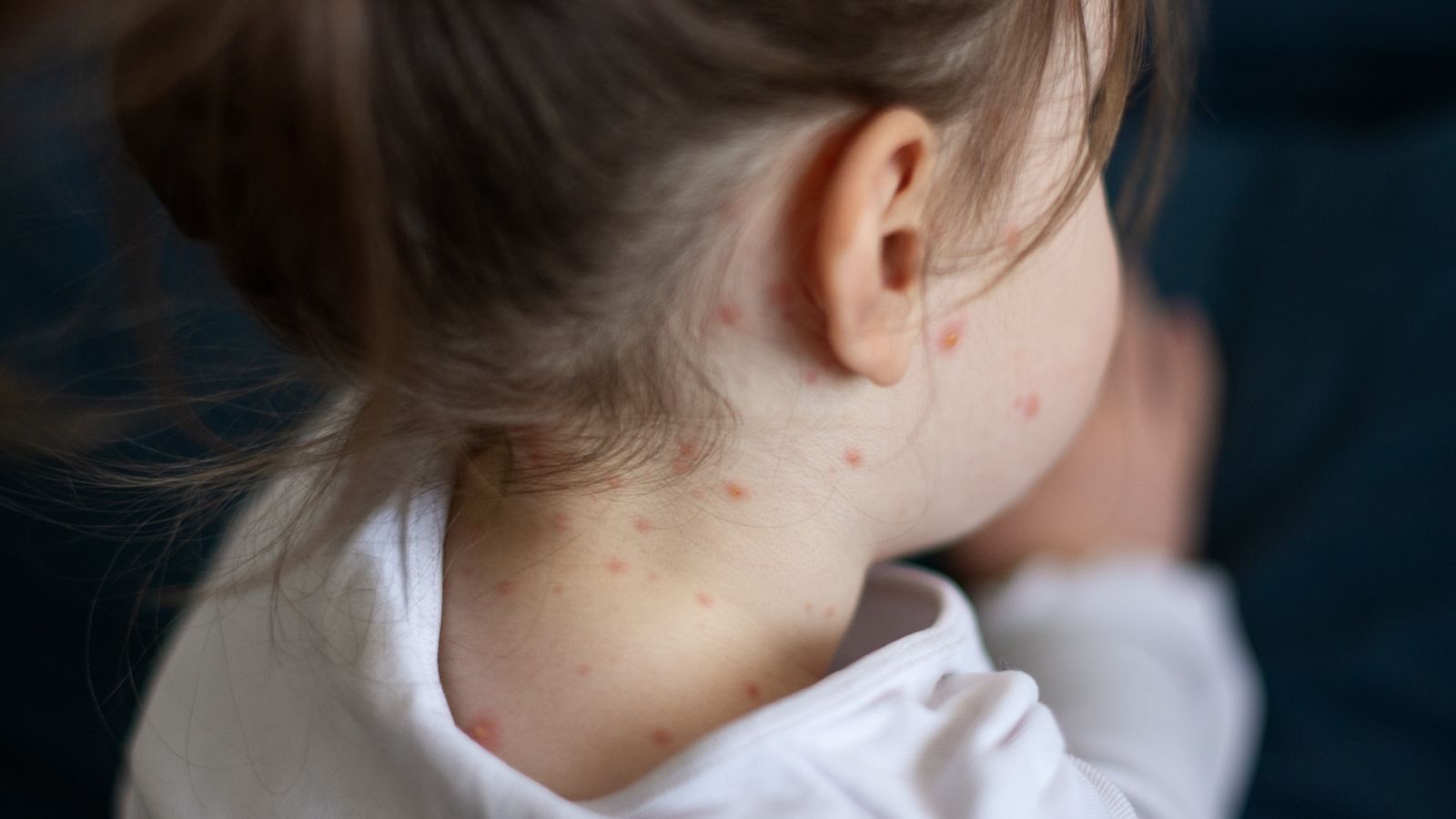Another 70 suspected measles cases have been reported in the UK as the World Health Organization (WHO) warns of an “alarming rise” in the spread of the disease across Europe.
The latest weekly data from the UK Health Security Agency (UKHSA) shows 144 suspected cases were reported in the two weeks up to 14 January 2024 – with 74 reported in the week up to 7 January and another 70 recorded the week after.
The biggest rise in cases has been in the West Midlands where 36 cases were reported in the week to 14 January – up on 27 reported from the week before, the data shows.
In London, 12 cases have been reported compared to eight for the week before.
In the East of England, there were four cases reported in the week leading up to 14 January, compared to one reported for the region the week before.
However, in all other regions the number of suspected cases fell.
The figures in the UKHSA’s weekly Statutory Notifications Of Infectious Diseases report only show suspected, and not confirmed, cases of measles.
Surgeon warns against weight loss operations abroad after death of young woman
What are the symptoms of measles – and why aren’t people getting vaccinated?
Heart disease warning as early deaths at highest rate in more than a decade
There were 1,603 suspected cases of measles in England and Wales in 2023, UKHSA statistics showed earlier this year.
The figure is up from 735 in 2022, and just 360 the year before.
‘Alarming rise’ across Europe
The UK figures come after experts from the WHO said Europe is seeing an “alarming rise” in the spread of the disease, which has “accelerated in recent months”.
Some 42,200 cases were reported by member states in 2023, almost 45 times the 941 cases in 2022.
The WHO said that falling vaccination rates were to blame, More people are also now travelling abroad after COVID-19, increasing the risk of cross-border disease transmission and spread within communities.
Two in five cases in 2023 were in children aged one to four, while one in five were among people aged 20 and over.
The rising trend is expected to continue if people do not vaccinate their children against the disease, the WHO said.
Measles usually starts with cold-like symptoms, followed by a rash a few days later. Some people may also get small spots in their mouth, according to the NHS.
The measles infection can spread very rapidly and cause serious problems in some people. The NHS says the best way to protect yourself against it is vaccination.
Read more:
What are the symptoms and how big a threat is it?
‘Very real risk’ of measles spreading across UK
Parents urged to book missed MMR vaccines
Please use Chrome browser for a more accessible video player
‘Trajectory getting much worse’ as national incident declared
Last week, the UKHSA declared a national incident in relation to suspected measles cases, enabling the agency to “focus on limiting further spread of the outbreak including additional work to help protect other areas at greatest risk”.
On Friday, Professor Dame Jenny Harries, the head of the UKHSA, warned the UK is on a “trajectory for everything getting much worse” when it comes to measles spreading,
Dame Jenny said “concerted action” is needed to tackle the virus, as she visited a measles blackspot in the West Midlands.
Figures released by the UKHSA on Friday show there have been 216 confirmed measles cases and 103 probable cases in the West Midlands since 1 October 2023.
Four-fifths (80%) were found in Birmingham while 10% were identified in Coventry, with the majority being in children aged under 10.
It comes after official figures showed the uptake of the vaccine is at its lowest point in more than a decade.
In 2022/23, some 84.5% of youngsters in England had received both doses of the jab by the time they were five years old – the lowest level since 2010/11. Some 92.5% had received one dose.
Be the first to get Breaking News
Install the Sky News app for free
Dame Jenny suggested the majority of people are not against their child receiving the MMR jab, but that they need more information to feel confident about their decision.
She added: “What we are seeing at the moment with measles is that people have forgotten what a serious illness it is.
“We have had very high vaccination rates, especially for young families, but they are low at the moment.”








